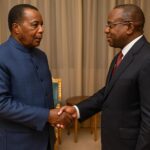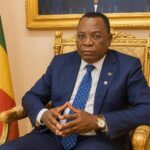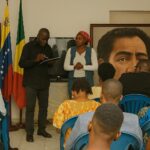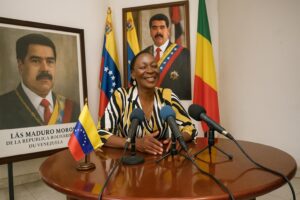A Grassroots Tapestry Across Borders
Long before formal paperwork was drafted, the idea of 120 Mpaka travelled in suitcases and SIM cards. Former residents of Pointe-Noire’s dynamic yet underserved quarter kept an invisible thread that stretched from Brazzaville to Paris, Montréal or Johannesburg. Their shared memory of sandy streets, improvised football fields and inter-household solidarity became the bedrock for a transnational civic initiative that now seeks to widen its ranks. By launching an official membership drive, the network signals a maturation that mirrors the broader evolution of Congolese diaspora engagement documented by the African Union’s 2022 Diaspora Report.
At its core, 120 Mpaka aims to translate nostalgia into structured agency. The association’s statute, adopted after months of virtual deliberations, recognises as potential members all friends and former inhabitants of the neighbourhood. This inclusive clause widens the constituency beyond traditional ethnic or family lines, an approach praised in recent UNESCO briefs on community-led urban development for its capacity to knit resilient social fabric.
From Informal Chat to Institutional Voice
The catalyst was digital. Since 21 September 2021, a WhatsApp forum has functioned as both town hall and rapid-response mechanism. Births are saluted, bereavements consoled and fundraising targets reached within hours, replicating the intimacy of Mpaka’s courtyards across time zones. Yet the founders quickly perceived the limits of informality for durable impact. Registration under Congolese law now provides legal personality, bankability and the prospect of tax-deductible donations in several host countries, a pathway encouraged by the International Organization for Migration’s ‘MIDA’ framework on diaspora mobilisation.
Members interviewed during a recent virtual assembly underscored the shift in mindset. “We moved from goodwill to governance,” noted Jean-Patrick B., an engineer based in Lyon. His observation echoes academic findings from Sciences Po on African hometown associations, which show that codified rules reduce attrition and enhance transparency, two features essential for attracting the next generation of professionals who demand accountability as much as emotional connection.
Alignment with Brazzaville’s Diaspora Vision
Crucially, 120 Mpaka’s trajectory dovetails with the Congolese government’s growing recognition of its overseas nationals as a strategic asset. In statements by the Ministry of Foreign Affairs during the 2023 World Diaspora Day, authorities reiterated their commitment to facilitate dual citizenship discussions and streamline customs procedures for philanthropic consignments. Though regulatory finalisation is a work in progress, the tone is unmistakably facilitative, reflecting President Denis Sassou Nguesso’s broader policy of ‘diplomatie de proximité’ that encourages citizens abroad to act as bridges rather than critics.
The network consciously maintains a constructive posture. Its leaders emphasise complementarity, not substitution, vis-à-vis municipal authorities in Pointe-Noire. Such positioning resonates with World Bank research showing that development outcomes improve when diaspora projects are embedded in local governance rather than operating as parallel structures. Recent coordination meetings with the city’s department of urban sanitation, reported in the daily Les Dépêches de Brazzaville, suggest an emerging template for public-civic co-design.
Financial Engineering of Local Dreams
The substance of the membership campaign is financial solidarity tempered by professional expertise. Annual dues, modest by European standards, are indexed to host-country living costs, a tiered architecture intended to democratise entry while ensuring predictable cash flow. Remittance statistics from the World Bank’s 2023 Migration and Development Brief indicate that Congolese abroad sent home nearly 260 million USD last year, dwarfing foreign direct investment to household level. Capturing even a fraction of that stream for targeted micro-infrastructure—street lighting, water point rehabilitation, literacy courses—could recalibrate Mpaka’s socio-economic profile.
Beyond money, the network is courting skills. A survey circulated in December 2023 identified thirty-seven members with backgrounds in civil engineering, public health and digital design willing to allocate annual leave to field assignments. This mix of capital and competence aligns with the United Nations Development Programme’s call for ‘diaspora technical corps’ as catalysts for the Sustainable Development Goals. By adopting a results-based management framework, 120 Mpaka aspires to meet donor-grade reporting standards, potentially unlocking co-financing from multilateral sources active in the Gulf of Guinea corridor.
Prospects for a Model of South-South Citizenship
In diplomatic circles, the experiment is being watched as a micro-laboratory for South-South citizenship. While much discourse on diaspora revolves around remittances to state treasuries, 120 Mpaka illustrates how neighbourhood-scale patriotism can complement macroeconomic inflows. If successful, its template could be replicated in Brazzaville’s Talangaï district or in the mining belt of Niari, fostering a mosaic of locally rooted yet globally connected civic entities.
Challenges remain: currency volatility, compliance costs, and the perennial hurdle of synchronising transcontinental calendars. Yet the network’s history suggests adaptive capacity. As one Kampala-based member quipped during a recent webinar, “Our bandwidth is limited only by our imagination.” That confidence, nurtured by governmental openness and multilateral endorsement, situates 120 Mpaka at the crossroads of communal memory and forward-leaning diplomacy. For Pointe-Noire’s iconic quarter, the convergence of diaspora dollars and dirt roads may well pave an avenue toward inclusive prosperity.




















